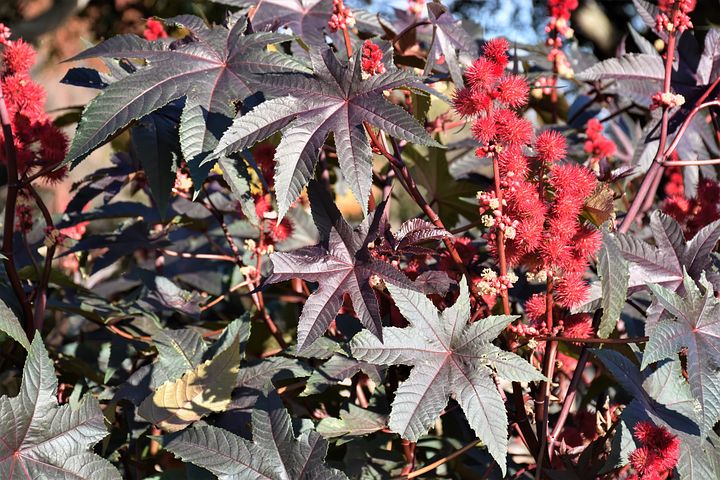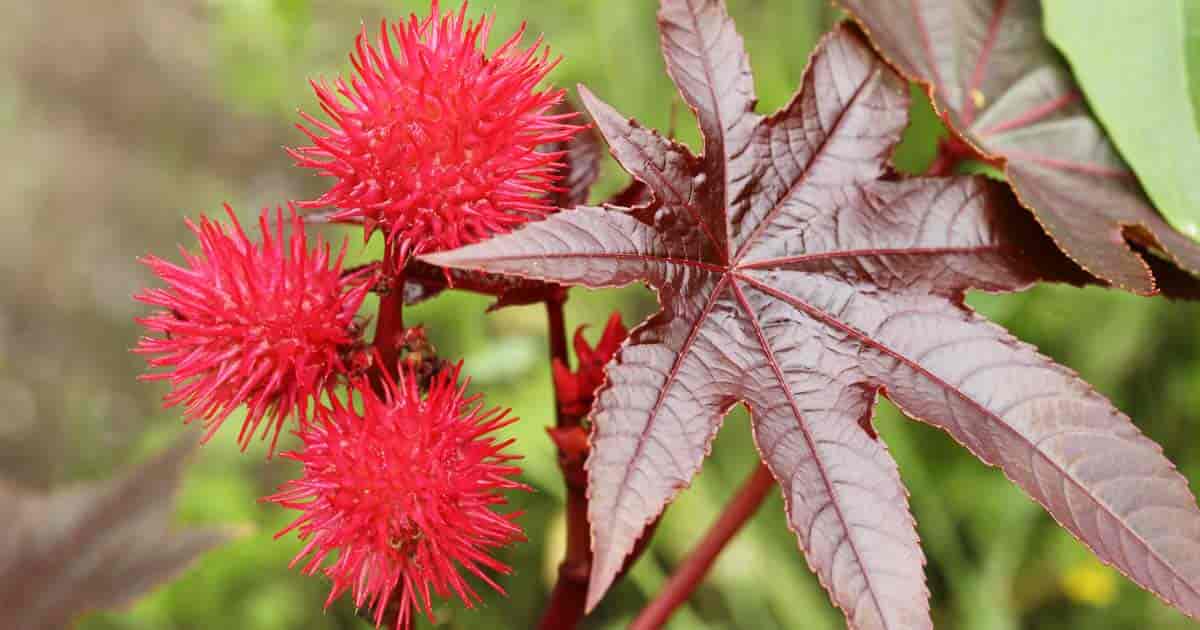A British woman out for a walk in the park was horrified to discover one of the world's most dangerous plants growing in a council flowerbed, according to Walesonline.
The woman discovered Ricinus communis, also known as the castor oil plant, which contains a poison 6,000 times more potent than cyanide and grows openly in a public flowerbed. According to Media Wales, Conwy Council groundskeepers planted flower beds in Queen Gardens Park in Colwyn Bay earlier this week. Among the flowers and shrubs was the plant.

Daniel Emlyn-Jones of Oxford cultivated the dreaded Dendrocnide Moroides, a native plant of Australia and Malesia that can deliver excruciatingly painful stings. Dendrocnide Moroides is also known as the "Gympie-Gympie" or "suicide plant." It can torture its victims "for more than a year if its stinging hairs are not removed from their skin." Fortunately, Daniel Emlyn-Jones' Gympie-Gympie is locked inside a cage labelled 'danger.'
The flower that the woman noticed is known as Ricinus Communis. A quick internet search on Ricinus Communis will reveal that it is listed in the Guinness Book of Records as the world's most poisonous flower.
Have you ever heard of the poison Ricin? It is derived from Ricinus Communis.
While walking beside a flower bed in Conwy, North Wales, the lady noticed the deadly flower growing openly. She didn't waste any time informing the local council.

The castor oil plant contains ricin, a prohibited substance that, in large enough quantities, is considered a chemical and biological weapon. Although gloves should be worn whenever the plant is handled, the seeds and seed heads pose the greatest risk if consumed. It only takes 1 to 10 seeds to kill someone.
The castor bean is the most poisonous common plant in the world, according to the Guinness Book of World Records, based on the amount of poison required to kill a human (Ricinus communis). A dose of 70 micrograms (2 millionths of an ounce) is enough to kill a person weighing 72 kg, according to the Merck Index: An Encyclopedia of Chemicals, Drugs, and Biologicals (1997). (160 lb or 11 st 4 lb).
Conwy Council, according to the Daily Post, said it would take the usual precautions with the latest batch of Ricinus planted in Colwyn Bay and elsewhere.
© Vygr Media Private Limited 2022. All Rights Reserved.








